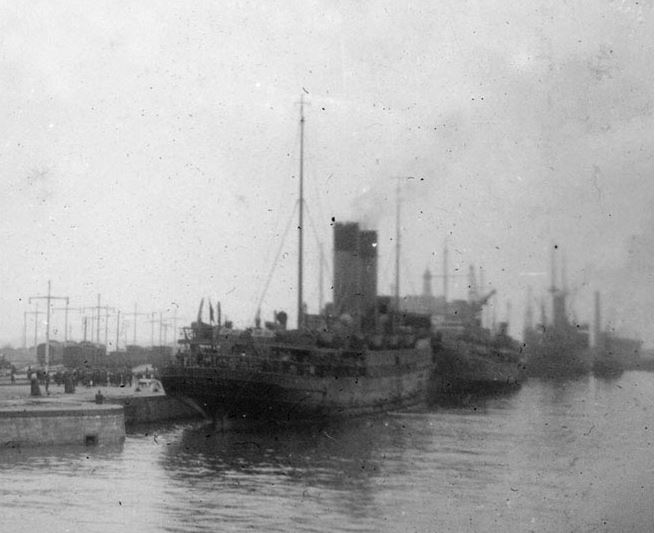Difference between revisions of "HMT Archangel"
From Our Contribution
(Created page with "{{Infobox | name = HMT Archangel | title = | above = | subheader = | image = File:HMT_Archangel.jpg | caption = |...") |
|||
| Line 18: | Line 18: | ||
| label2 = Name | | label2 = Name | ||
| − | | data2 = HMT Archangel | + | | data2 = ''HMT Archangel |
| − | | label3 = Builder/Built | + | ''| label3 = Builder/Built |
| data3 = 1910 John Brown & Co of Clydebank | | data3 = 1910 John Brown & Co of Clydebank | ||
| Line 38: | Line 38: | ||
==Remarks== | ==Remarks== | ||
| − | Built for the Great Eastern Railway for use on the Harwich to Hook of Holland route, her original name was SS St Petersburg. | + | Built for the Great Eastern Railway for use on the Harwich to Hook of Holland route, her original name was ''SS St Petersburg''. |
| − | She was requisitioned by the Admiralty in 1916 and renamed Archangel, and used as a cross channel troopship. | + | She was requisitioned by the Admiralty in 1916 and renamed ''Archangel'', and used as a cross channel troopship. |
After the war she returned to railway ownership. On 20 Jan 1925 she ran aground on the Hook of Holland, with all passengers taken ashore by three tugs before she was recovered. | After the war she returned to railway ownership. On 20 Jan 1925 she ran aground on the Hook of Holland, with all passengers taken ashore by three tugs before she was recovered. | ||
Revision as of 02:36, 1 April 2017
 | |
| History | |
|---|---|
| Name |
HMT Archangel |
| Builder/Built | 1910 John Brown & Co of Clydebank |
| Type | Channel Ferry |
| Displacement | 2,448 tons |
| Speed | 21 knots |
Remarks
Built for the Great Eastern Railway for use on the Harwich to Hook of Holland route, her original name was SS St Petersburg.
She was requisitioned by the Admiralty in 1916 and renamed Archangel, and used as a cross channel troopship.
After the war she returned to railway ownership. On 20 Jan 1925 she ran aground on the Hook of Holland, with all passengers taken ashore by three tugs before she was recovered.
Requisitioned again during WW2 she was bombed by German aircraft on 16 May 1941 10 kms east of Aberdeen with considerable casualties. The next day she ran ashore and broke up.